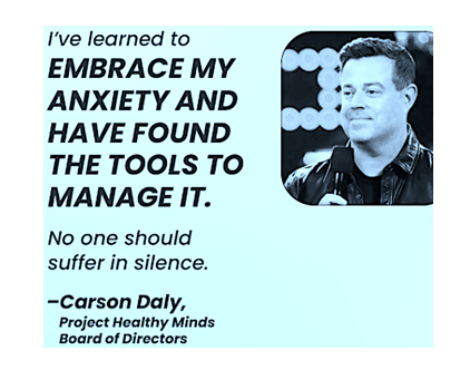Feeling stress at work is normal and to be expected. But dealing with prolonged stress on the job that never seems to go away might be a sign that there’s something bigger going on.
It surprised us to learn that 70% of Canadian employees are concerned about the psychological health and safety of their workplace. In fact, 14% don’t think their job is healthy or safe at all.
If your job is causing you constant stress, you could have work-induced depression. Keep reading to learn all about it and what you can do to overcome it.
What is work-induced depression?
Work-induced depression, also known as “occupational burnout,” is a type of depression that can develop as a result of excessive and prolonged stress at work.
Work-induced depression can affect anyone, regardless of their job type or level of seniority. According to Mental Health America, depression ranks among the top three workplace problems reported to employee assistance professionals, following only family crises and stress. It can be triggered by a variety of factors, including long hours, high stress, low job satisfaction, lack of support from colleagues or managers, and a lack of control over one’s work.
You may already have depression that is exacerbated by your work environment, or your work environment may lend a hand in developing depression.
Symptoms of work depression include:
- Persistent feelings of sadness and hopelessness
- Withdrawing or isolating oneself from others
- Poor self-hygiene or significant changes in appearance
- Arriving late to work, missing meetings, or skipping work altogether
- Procrastination, missed deadlines, reduced productivity, subpar performance in tasks, increased errors, or difficulty making decisions
- Having a hard time concentrating
- Indifference, forgetfulness, detachment, and disinterest in things
- Feeling tired throughout the day (including taking afternoon naps at work)
- Irritability, anger, feeling overwhelmed, or getting very emotional during conversations
- Lack of confidence while attempting tasks
What are some factors that contribute to work depression?
There are many factors that can contribute to work-induced depression. Some of the most common ones include:
High levels of stress
Many jobs, particularly those in high-pressure environments, can be very stressful. This stress can come from a variety of sources, including tight deadlines, demanding workloads, difficult clients or customers, and a lack of support from supervisors or colleagues.
Limited control over your work
People who feel like they have little control over their work, such as those who are micromanaged or have little autonomy, may be more likely to develop work-induced depression.
Isolation
Some jobs, such as working from home or working in a remote location, can be isolating and can lead to feelings of loneliness and disconnection.
Lack of recognition or reward
People who feel like their hard work and contributions are not being recognized or appreciated may be more likely to develop work-induced depression.
Unfairness or discrimination
Experiencing unfair treatment or discrimination at work can be a major contributing factor to work-induced depression.
How to deal with work depression
If you’re experiencing work-related depression, it’s important to take care of yourself and seek help if necessary. Here are a few steps you can take to help manage and cope with work-induced depression:
Identify the causes of your depression
It could be due to a heavy workload, challenging work environment, or difficult relationships with colleagues. Once you understand the underlying causes, you can take steps to address them.Reach out to a trusted colleague, friend, or family member for support
Talking about your feelings can help you feel less alone and give you a different perspective on your situation.Consider speaking with a mental health professional
A therapist or counselor can help you develop coping strategies and provide support during this difficult time.Take care of your physical health
Depression can affect your energy levels, appetite, and sleep. Make sure to get regular exercise, eat a healthy diet, and get enough sleep.Try to maintain a healthy work-life balance.
It’s important to set boundaries between your work and personal life and make time for activities that you enjoy outside of work.If necessary, consider making a change in your job or workplace.
If the causes of your depression are not able to be addressed, it may be necessary to consider finding a new job or working in a different environment.
Where to start
Remember, it’s okay to seek out help when you need it.
Taking YMI’s science-backed survey is a great place to start. Artificial intelligence and data science will measure your answers and create a personalized report to help identify your triggers and determine what support might be useful to you as you move forward.



